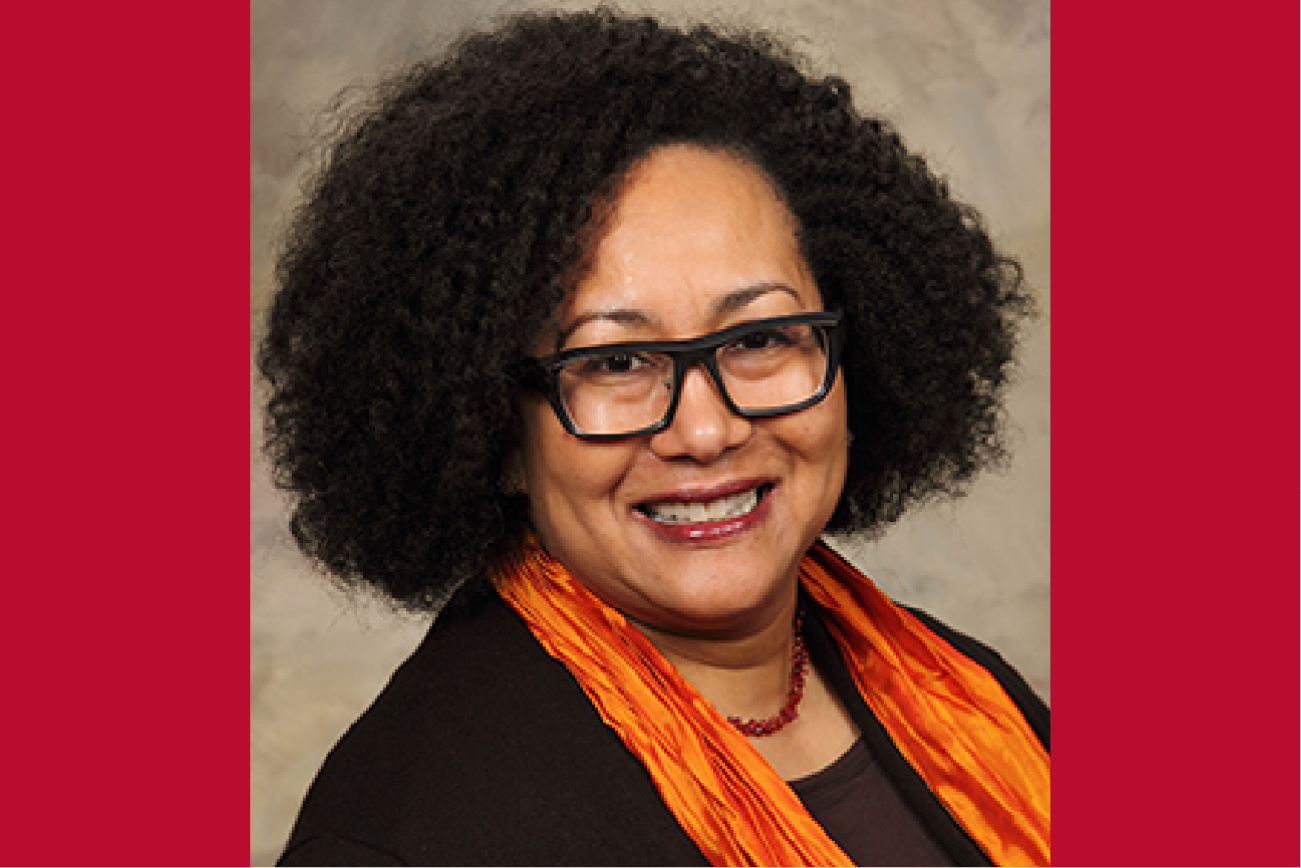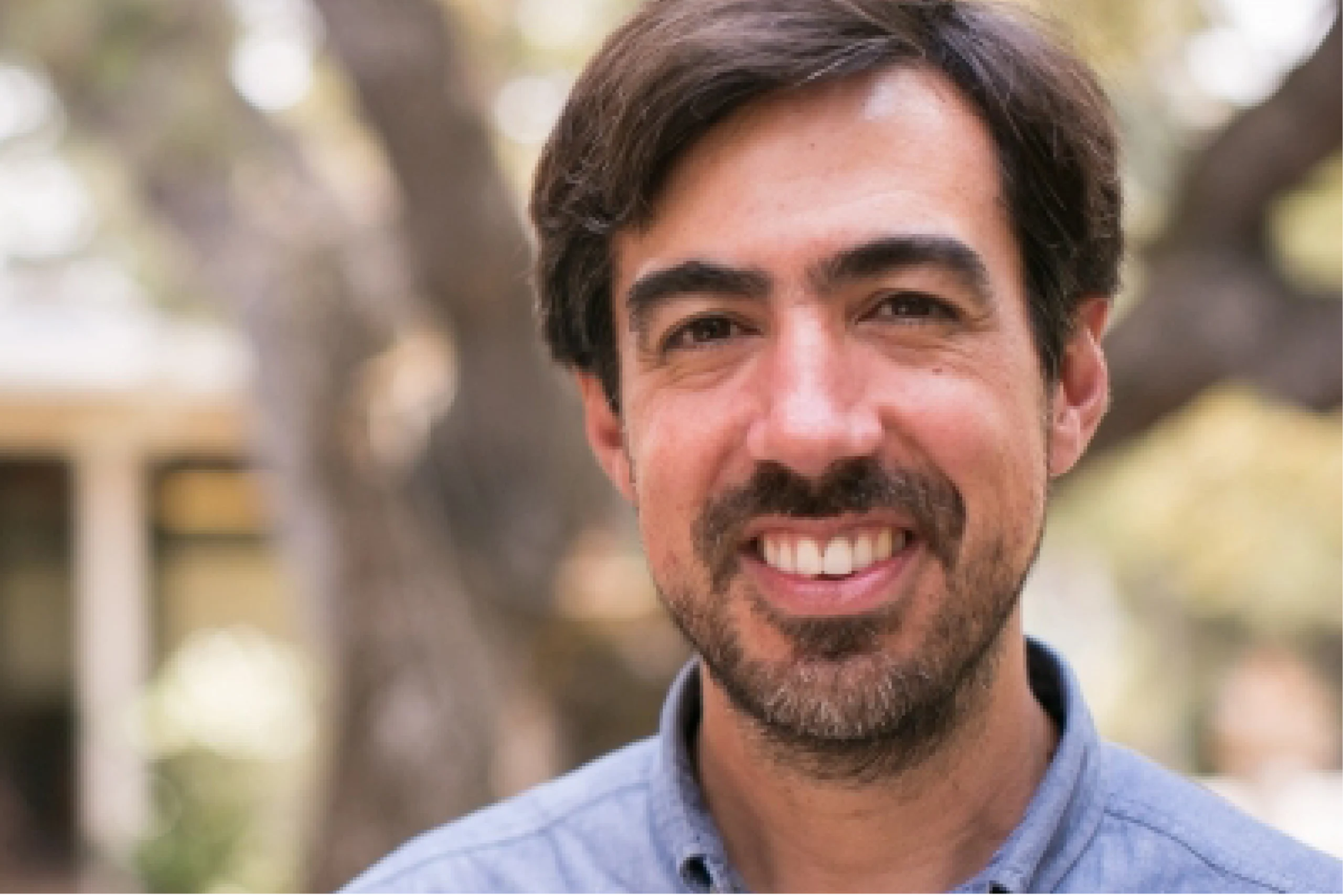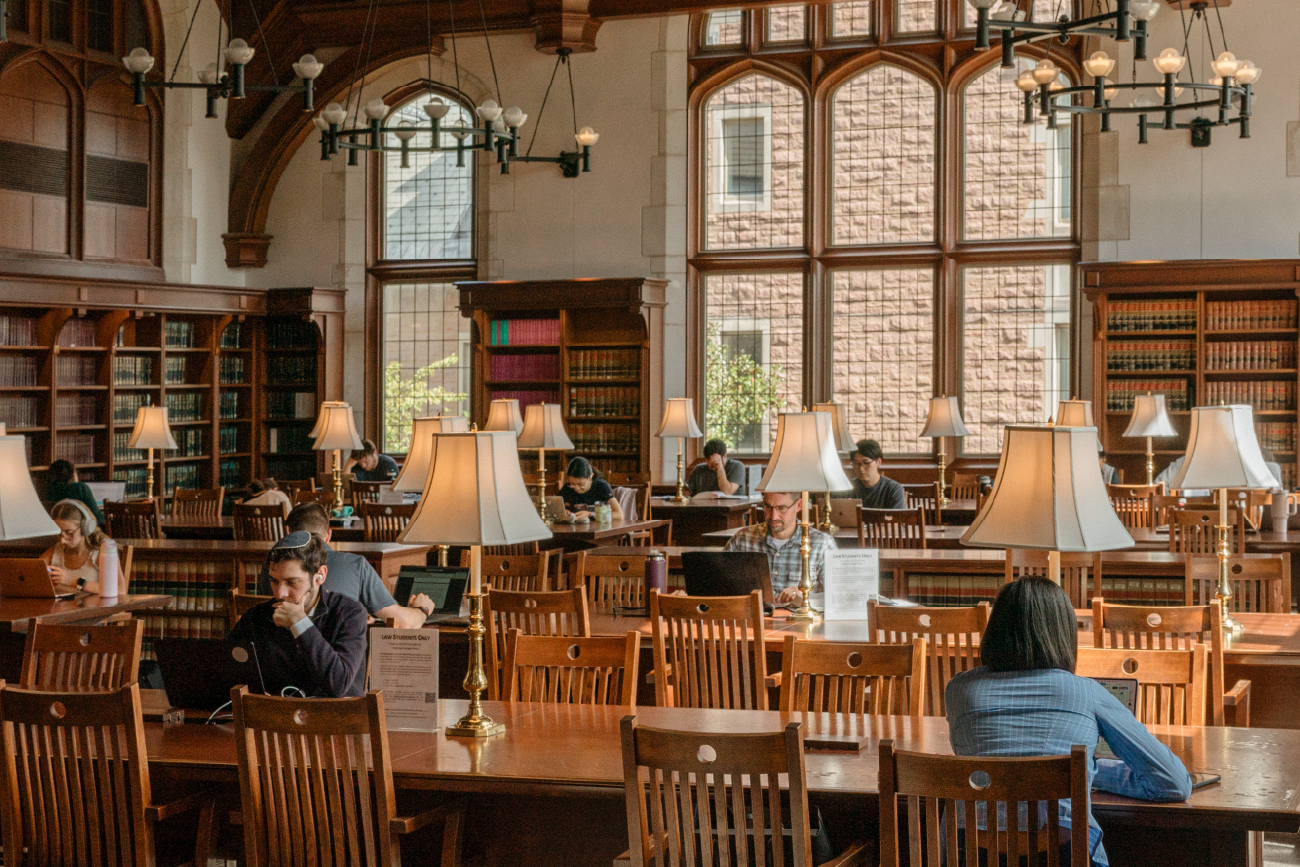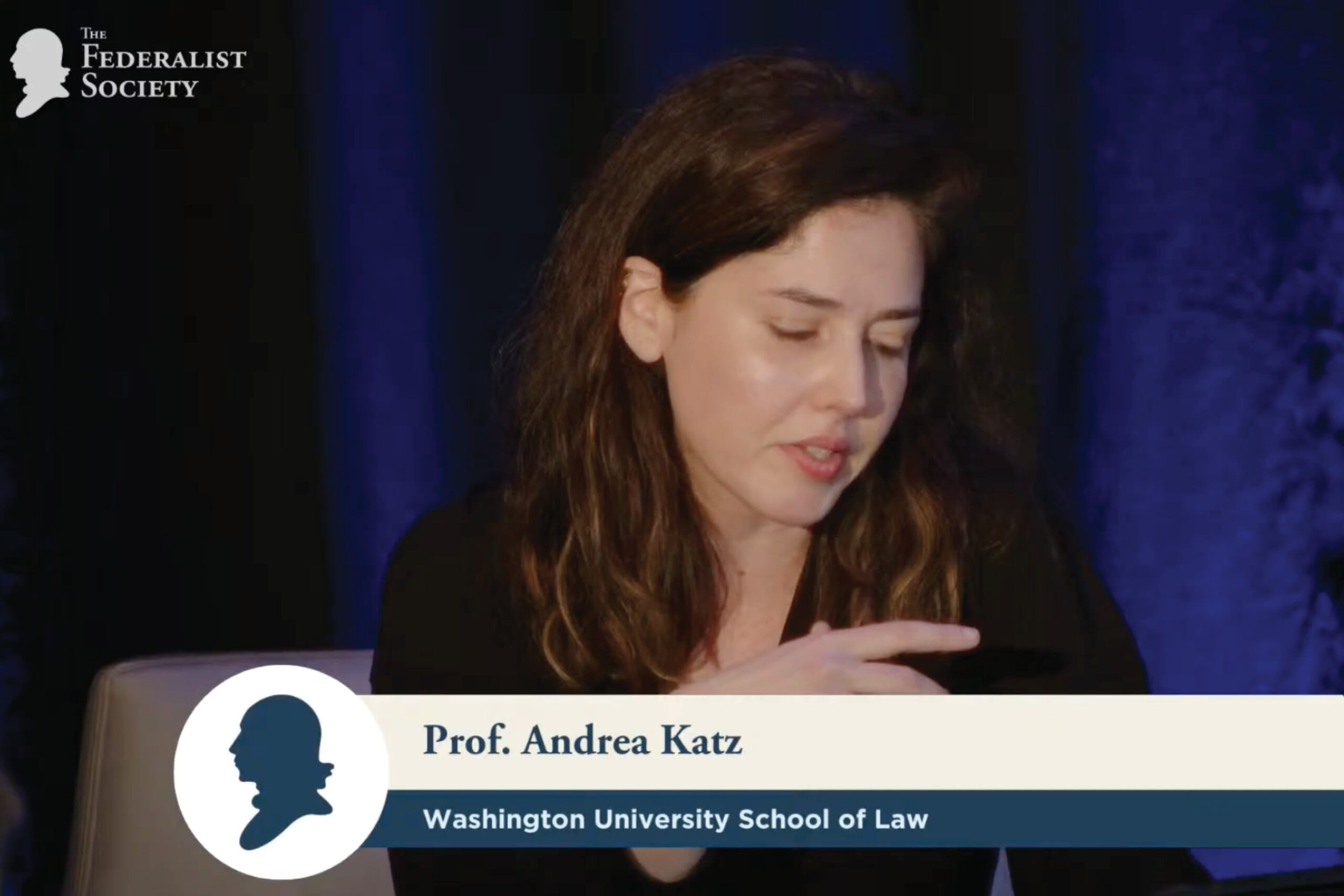
Most people think of the law as a public force governing crime, politics, and constitutional rights, but for Professor Adrienne Davis, the more interesting legal questions unfold in the private corners of everyday life.
“The law governs much more than what we traditionally think of as justice. It’s in the personal relationships we navigate every day, from family structures to contracts,” she says.
Davis holds dual appointments as the William M. Van Cleve Professor of Law and Professor of Organizational Behavior and Leadership in the Olin Business School. In the law school, she teaches Trusts & Estates, Critical Race, a variety of legal theory seminars, including Slavery & the Law, and hopefully soon a course on Art, Law & Markets.
Her research seeks to understand how the law both uplifts and constrains human flourishing, particularly as it pertains to property, inheritance, and contracts. Davis is renowned for her work on gender and race relations, and her work often delves into historical contexts, such as how laws under slavery conflicted with the “shadow family” structures some slave owners tried to create.
“It was an interesting legal question,” Davis said. “For example, a slaveholder dies and leaves his estate to an enslaved person he worked to emancipate. The law had to decide: does the system uphold the slaveholder’s property rights and intentions for his family, or does it uphold racial subordination and undermine the very idea of family itself?”
This tension between personal desires and legal structures remains central to her work, which also explores contemporary issues like polygamy and sex work. Davis challenges traditional views, adding, “It’s not a simple matter of permitting or banning—these issues require a nuanced legal response.”
Davis founded and was the inaugural director (2020-2022) of WashU’s Center for the Study of Race, Ethnicity & Equity, which was created by Chancellor Andrew Martin to facilitate collaborative research and study how race and ethnicity are integral to the most complex and challenging issues of our time.
Beyond her scholarship, Davis is an active patron of the visual and performing arts and longtime champion for cultural institutions and Black artists in St. Louis, believing that “art is a profound way of expressing views of the world and giving dignity and visibility to people.” Her personal collection includes many pieces by Black artists and serves as a constant reminder of her commitment to racial justice and community investment. From her first purchase as a law student in Paris, she has viewed art as both an investment in Black communities and a source of inspiration.
“Art helps me dream,” Davis said. “It prompts me to envision different worlds where people are valued differently.”
Davis is also in the process of pitching a new course at WashU covering art, law, and markets to combine her two passions. “The art world is fascinating to me, and it’s very understudied,” Davis said. “I see an excellent opportunity to help both law and business students understand the legal systems governing the art world and how they differ from other markets like real estate or securities.”
Earlier this month, Davis was honored with a VISIONARY Award for her influential role in St. Louis’ arts community, a community she believes ranks among the world’s finest. “The arts bring in more revenue than all sports in this city—they are a huge part of our cultural identity,” she said. “They provoke us to dream big about what could be and tell the stories that really touch people and matter.”
Looking to the future, Davis remains committed to expanding the boundaries of legal thought and inspiring the next generation of scholars. “I’m excited about the future because the next generation of legal thinkers is already questioning old assumptions and asking bigger questions,” she said. Through her scholarship, leadership, and advocacy for the arts, Davis continues to shape a more inclusive and equitable future both in the legal profession and beyond.



